Happy New Year and welcome to the first box of 2020 of our Curious Tea subscription! Here’s a closer look at the four exciting new teas that we are sharing with our subscribers this month.
The first light tea this month is a unique Japanese Kamairicha green tea that is processed by pan-frying rather than traditional steaming.
The second light tea is a classic Bi Luo Chun green tea from China that has a traditional vegetal profile.
For the dark side of the selection we have another handmade summer Assam, this time from a small tea garden in Naharhaku Village.
Finally, the last tea we are featuring this month is a particularly flavoursome Japanese black tea from the same producer as our Kamairicha.
- Light: Ashikita Yabukita Kamairicha and Dong Ting Bi Luo Chun;
- Dark: Assam Naharhaku Second Flush and Ashikita Yabukita Wakocha;
- Mixed: Ashikita Yabukita Kamairicha and Assam Naharhaku Second Flush.
Our Discovery subscription boxes contain 10g taster pouches of all of the above mentioned teas. If you are a subscriber you will benefit from a 10% discount on all teas from our tea shop!
Let’s get into further detail on the products featured in our January tea subscription boxes.
Ashikita Yabukita Kamairicha
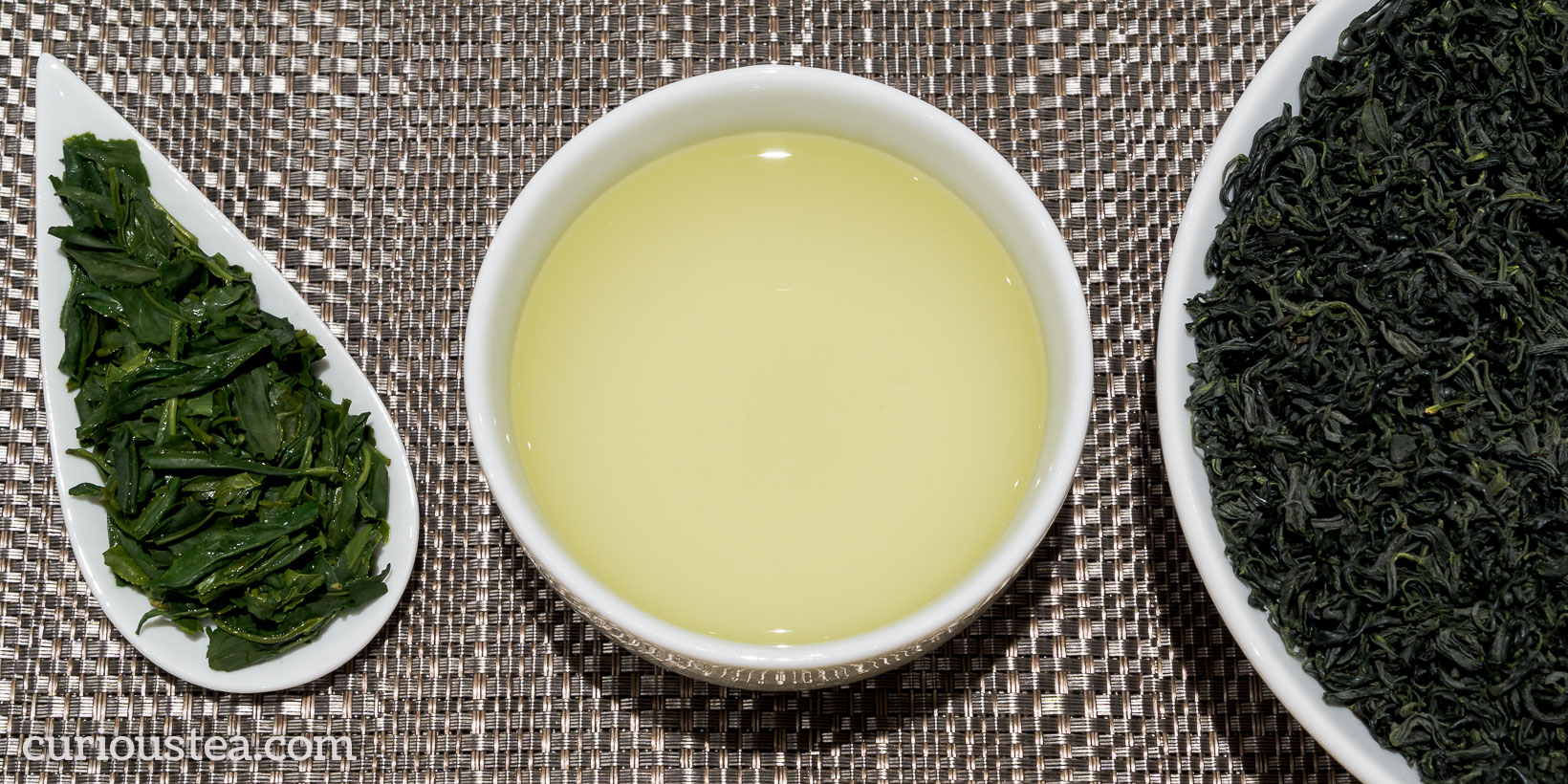
Ashikita Yabukita Kamairicha (芦北町やぶきた釜炒り茶) is a satisfying vegetal Japanese green tea crafted from Yabukita cultivar plants. It is grown on Kajihara Tea Farm located in Ashikita District of Kumamoto Prefecture that is run to organic standards. Unlike most Japanese green teas, this tea is pan-fried rather than steamed, resulting in a more balanced and smoother character. This tea is from spring 2019 harvest and we source it direct from the grower, Mr Toshihiro Kajihara. We are also offering Ashikita Yabukita Wakocha, which is a black version of this tea this month!
While Kajihara tea garden mostly focuses on heritage native ‘zairai’ plants, they also have a number of various Japanese cultivars planted on their farm to further differentiate and extend their range of teas. This Ashikita Yabukita Kamairicha is made from the leaves of Yabukita (やぶきた) cultivar plants. Yabukita is the most popular and widespread tea plant in Japan and cover about 75% of Japanese tea fields. It was developed in the early 1900’s by Hikosaburo Sugiyama, a tea cultivator from Shizuoka; but it was officially registered only in 1956. Yabukita plants quickly proved popular due to their hardiness, ease of cultivation and tea flavour produced. With time it became the mainstay of Japanese green tea production. One of the main factors for the popularity of the Yabukita cultivar has been the flavours that they are known for. These plants produce teas with typical savoury and umami grassy flavours and strong aromas that are particularly sought after in Japanese green tea.
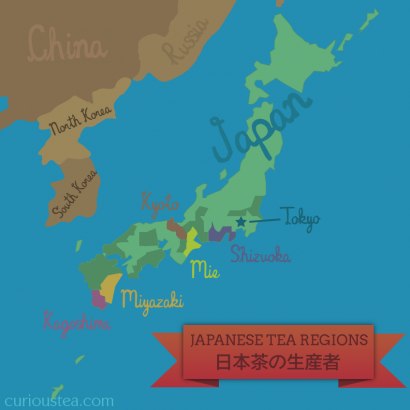
Ashikita Yabukita Kamairicha is a pan-fried tea; kamairicha (釜炒り茶) literally translates as ‘pan-fried tea’. Pan-frying or steaming fresh tea leaves is the process that stops oxidation of the leaves, producing green tea. The process of pan-frying of tea leaves first arrived to Japan from China in the Edo period, around 17th century. However, this method fell out of favour and nowadays most Japanese green teas are steamed, which results in a distinctive taste that tends to be heavier on grassy, savoury and astringent flavours. By contrast, kamairicha undergoes pan-frying that results in a flavour profile that is more balanced with sweeter and lighter green notes. Less than 5% of current Japan’s tea output is within the pan-fried category. Pan-frying is still largely performed by hand and requires great skill by the tea master to achieve the perfect results. Hence the general rarity and higher costs for such green tea. We also offer an award-winning native tea plant Ashikita Zairai Kamairicha from Kajihara Tea Farm that makes an interesting comparison.
This Ashikita Yabukita Kamairicha green tea has neat, dark curled leaf that has evidently been pan-fried rather than steamed. The processing results in the leaf remaining largely intact when compared to steamed green teas. This Kamairicha has quite a large leaf with a nice savoury and vegetal aroma on the dry leaf. The opaque liquor produced has a light yellow-green colour and a light vegetal scent. The flavours are very satisfying, with a balanced vegetal and savoury profile. There are pronounced mineral, umami and grassy notes that are a little reminiscent of a light gyokuro tea. The overall impression is that of verdant and herbaceous smoothness and a distinct thickness of the flavour. There is a little dryness at the end of the taste, yet no astringency or bitterness. The pleasant aftertaste continues to deliver similar flavours with a touch of sweetness. This is a great Japanese green tea that is perfect for savouring paired with light Japanese sweets.
It is best brewed at 80°C for around 2 minutes, with multiple infusions.
You can also buy Ashikita Yabukita Kamairicha green tea in our online shop.
Dong Ting Bi Luo Chun
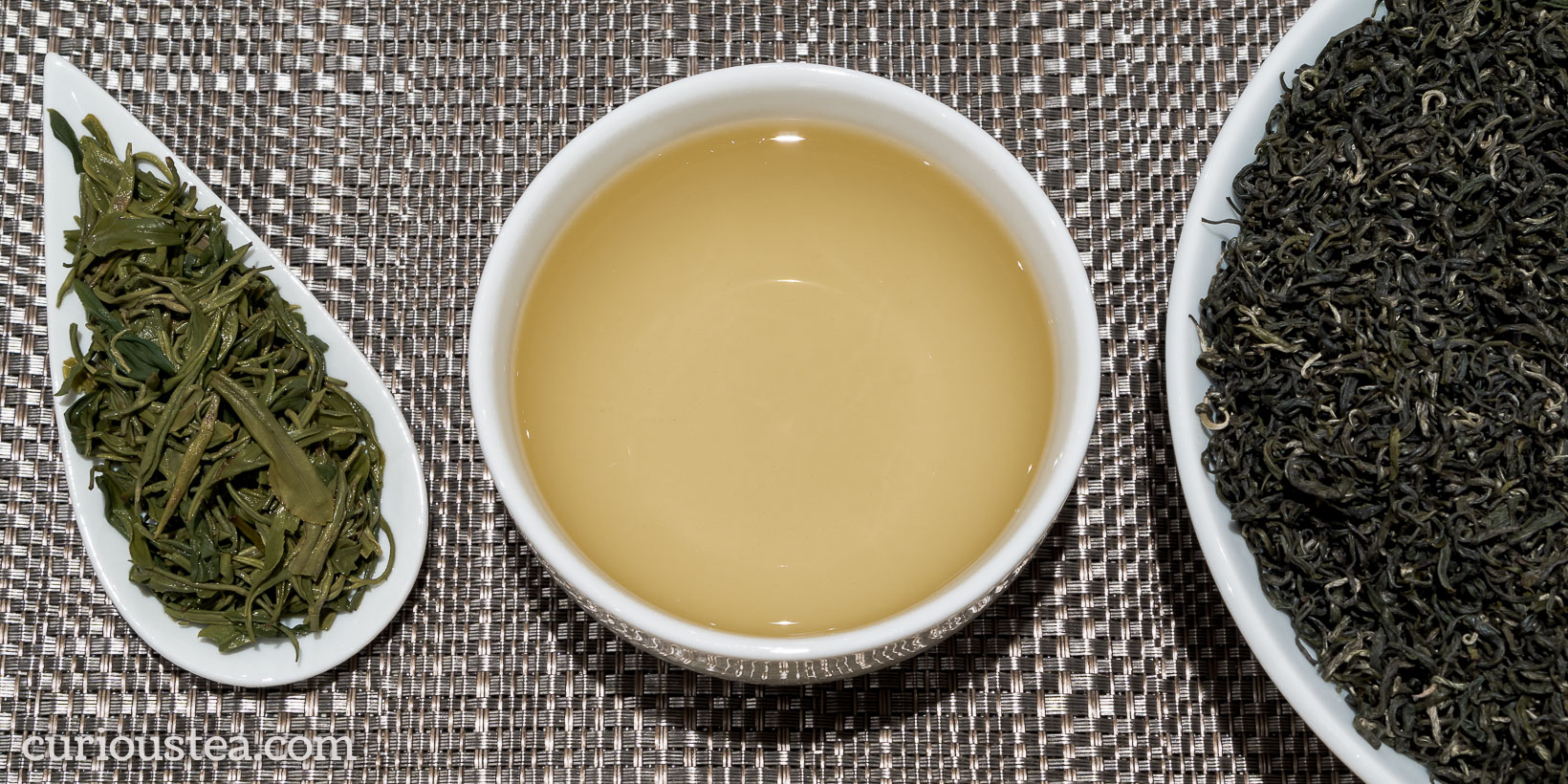
Dong Ting Bi Luo Chun (洞庭碧螺春) is a light green tea from the famous Dong Ting Mountain tea growing area of Jiangsu Province. The name of this tea translates as ‘Green Snail Spring’ and refers to the colour, the shape and the plucking time for this tea. Classic Bi Luo Chun originates from Dong Ting Mountain area next to Lake Taihu in Jiangsu Province, China and this region still produces some of the best Bi Luo Chun tea. This particular tea is from early April (around 4-6 days after Qing Ming) 2019 harvest.
Bi Luo Chun is one of China’s 10 famous teas and is regarded by some as one of the best green teas from China. This particular type from Dong Ting is particularly renowned for having a more tippy, uniform appearance of the tea leaves and for having a fresher, cleaner taste with floral and fruity notes.
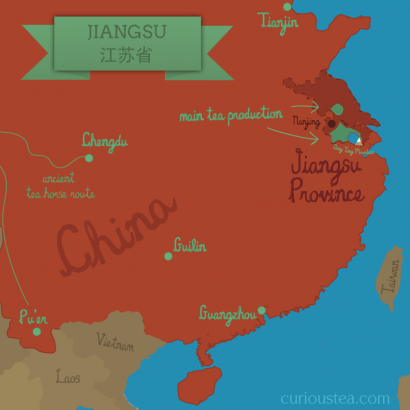
The original name for this tea was Xia Sha Ren Xiang, which can be translated as ‘Astounding Fragrance’ or ‘Scary Fragrance’. The legend tells the story of a girl, who discovered this tea. Whilst plucking the tea leaves, she ran out of space in her basket, so she put the tea leaves between her breasts instead. The tea, which got warmed by her body heat produced a strong fragrance, which greatly surprised the girl, hence the name Astounding (or Scary) Fragrance. The Astounding or Scary Fragrance name stuck well due to the wonderful aroma that is characteristic of this tea. This name was changed later by one of the Chinese emperors, who thought that a more elegant Bi Luo Chun or ‘Green Snail Spring’ is a more fitting description for this special tea.
The green and silver tippy leaves of this Dong Ting Bi Luo Chun green tea have a distinctive twisted shape, resembling a small snail. The dry leaves have a characteristic strong yet pleasant aroma. The liquor is pale and very delicate with a floral and vegetal fragrance. This tea has a refreshing taste with a lovely light profile. There is a delicate vegetal and floral taste that has notes of green vegetables and flowers, such as courgettes and dandelions. This tea has a delicate sweetness to it that gives way to a slightly savoury aftertaste.
We suggest brewing at 80°C for 2-3 minutes according to your taste. It can be brewed around 2-3 times depending on your preference.
You can also buy Dong Ting Bi Luo Chun green tea in our online shop.
Assam Naharhaku Second Flush
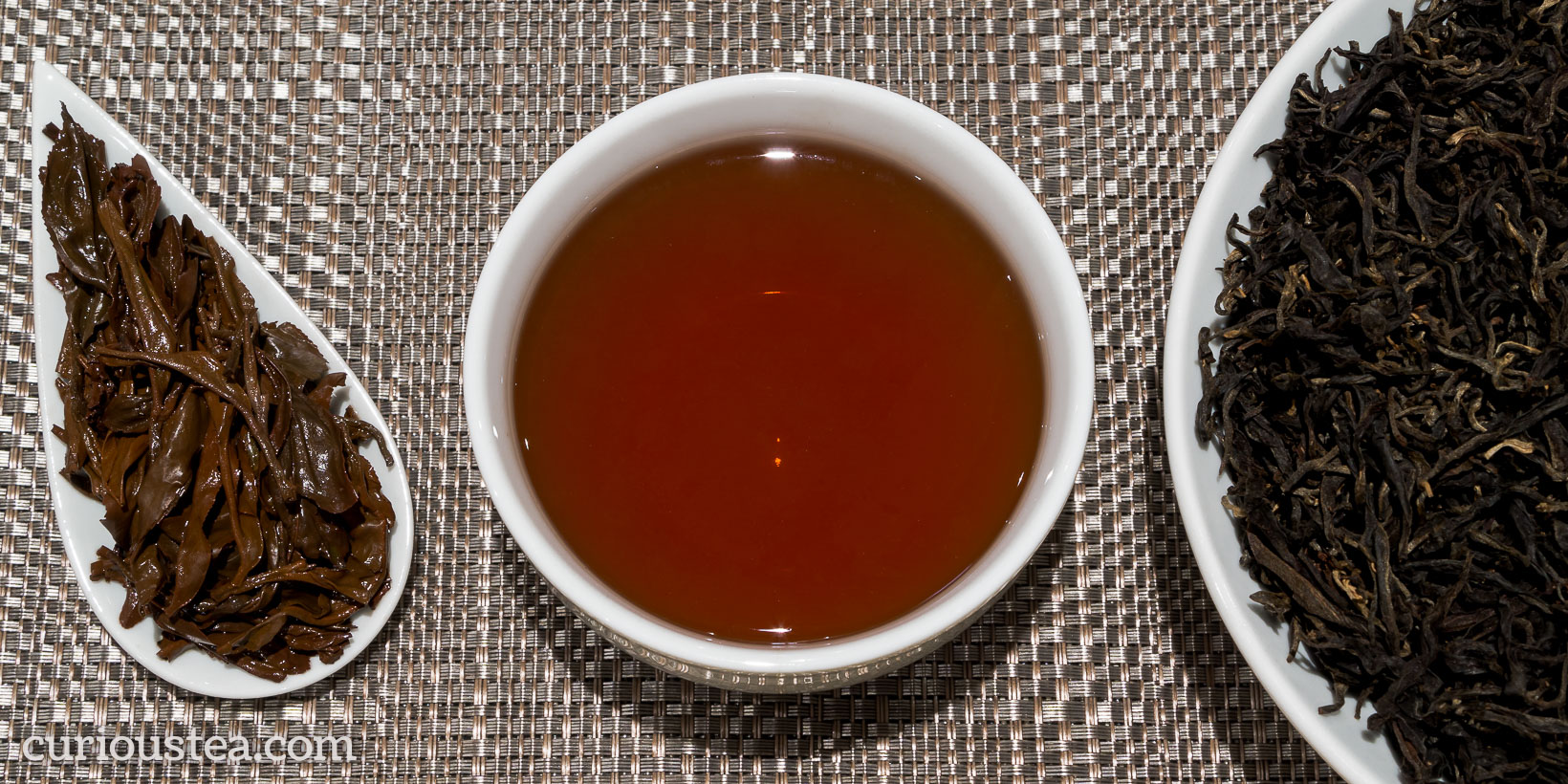
Assam Naharhaku Second Flush is a fine Second Flush Assam from a small tea garden located in Naharhaku Village in Assam. This garden has been operating on natural and sustainable principles since 2015, so the teas from here are produced to organic standards. Picked in early summer of 2019, this classic summer Assam produces a bold yet balanced classic Assam flavour.
Naharhaku tea garden is run by Mr Lakhyajeet, who has a small tea plantation that is located in the village of Naharhaku at a low altitude of around 100 metres. This growing environment is typical for Assam teas. The plants used in the garden are a mixture of seed plants that have been collected from various local gardens as well as native trees. This makes the results less predictable but perhaps more interesting!
We work together with a specialist wholesaler in India who only works with small scale gardens like Naharhaku. They do not just resell the farmers’ teas but also provide support and financial help to small scale farmers to enable them to produce great quality tea – such as investing into machinery and providing them with knowhow. In this case they were instrumental with helping Mr Lakhyajeet and his family in making their micro tea factory a great success.
In fact Mr Lakhyajeet was inspired by both Latumoni (Assam Latumoni Royal Gold & Assam Latumoni Tea Flowers) and Koliapani (Assam Koliapani Signature Black & Assam Koliapani Xuwola Green) tea gardens to take advantage of the initiative and support available for him in converting his garden to traditional and natural farming. The owner of Latumoni was instrumental in training Mr Lakhyajeet and helping him design his micro processing tea unit. The owner of Koliapani in turn helped with the design and manufacture of a unique drying system. We think this collaboration in technical knowledge combined with passion for natural and biodynamic farming is producing some excellent results on all these small scale tea gardens.
Assam Naharhaku Second Flush has a twisted leaf that produces a dark red-brown liquor that is somewhat opaque. The aroma is that of fruits, especially of stewed plums. The flavours are balanced with specifically pronounced mineral and malty notes of cooked red fruits and molasses. The taste is a little light and brisk, having a rather soft Assam flavour. The aftertaste is tangy, with an alcoholic feel, and again cooked red fruits. This tea delivers some balanced and classic flavours without the typical Assam astringency or harshness.
We suggest brewing parameters of 90°C for 3-4 minutes according to your taste, brewing multiple times. Definitely best drunk without milk, although you could always experiment with brewing it stronger and adding just a little dash of milk if desired.
You can also buy Assam Naharhaku Second Flush black tea in our online shop.
Ashikita Yabukita Wakocha
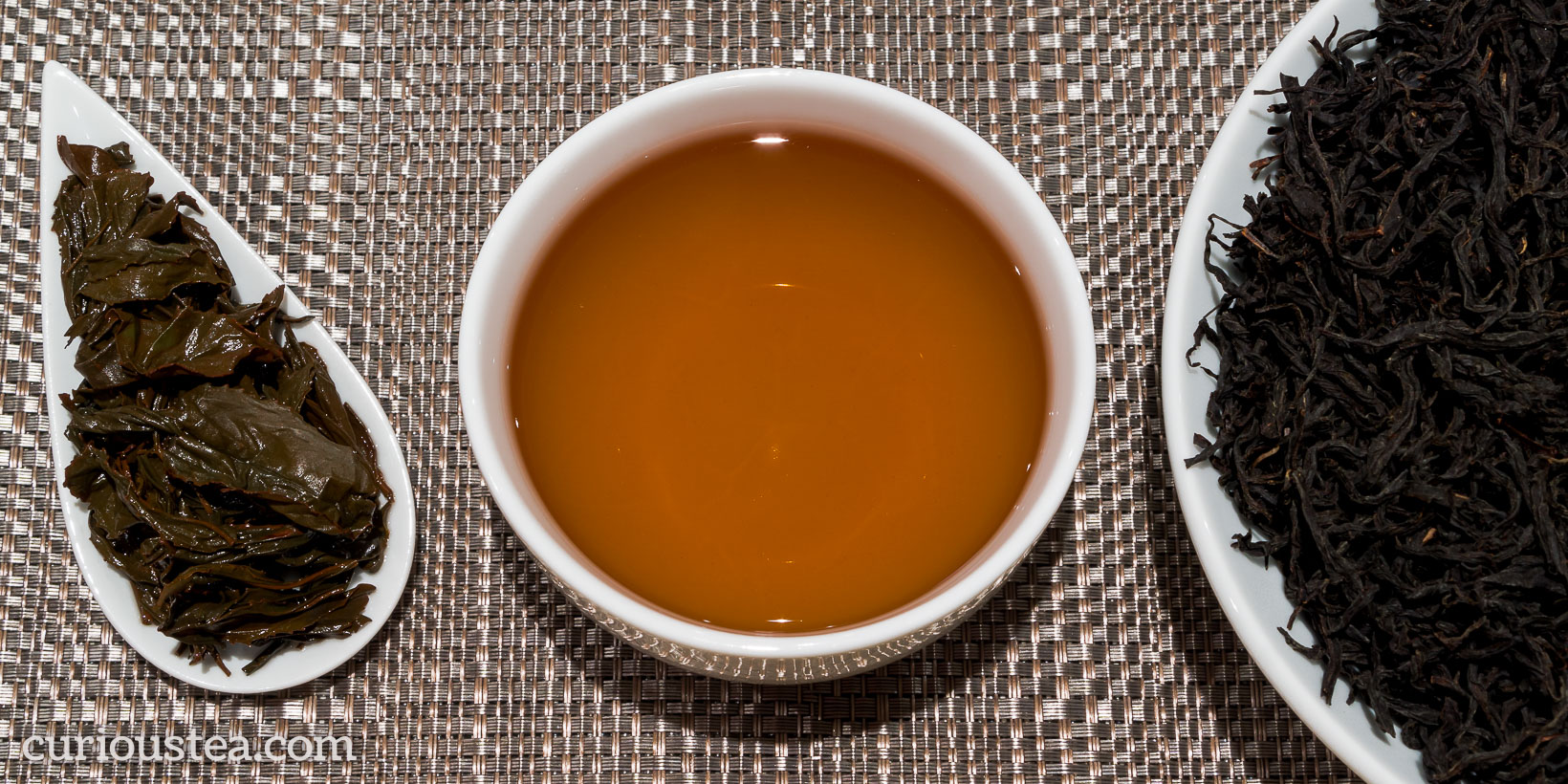
Ashikita Yabukita Wakocha (芦北町やぶきた和紅茶) is a unique Japanese black tea grown on Kajihara Tea Farm that is run to organic standards in Ashikita District of Kumamoto Prefecture. This tea is crafted from the Yabukita cultivar plants, which results in a distinctive profile that is fruity and has intriguing baked wheat notes. This tea is from spring 2019 harvest and we source it direct from the grower, Mr Toshihiro Kajihara. We are also offering Ashikita Yabukita Kamairicha, a green pan-fried version of this tea, this month!
Wakocha (和紅茶), or Japanese black tea, is still rather rare and sourcing it can be quite complex due to small production levels and mixed results. Different cultivars are utilised for producing different Wakocha black teas with different flavour profiles. For example our Makinohara Benifuki Wakocha has a more broken leaf and a much bolder black tea profile. This Ashikita Yabukita Wakocha by comparison delivers a much more delicate flavour that results in a fascinating taste. In fact this is one of the most unique black teas from Japan that we had tasted here at Curious Tea!
This Ashikita Yabukita Wakocha black tea consists of large dark twisted leaves that are somewhat unusual for Wakocha as they are still mostly unbroken. The liquor produced has a bronze colour with fantastic clarity and brightness. It has a wonderfully comforting, lightly sweet, baked aroma. The fruity profile has sweet notes of baked goods, pastries, wheat and other cereals. There are also some spicy notes that combined with the baked wheat notes make us think of speculoos biscuits. The aftertaste is not lasting, but very clean with just a touch of dryness. This is a wonderfully different and flavoursome tea that has a light and refined flavour that is perfect for savouring on its own.
It is best brewed at 90°C for around 3 minutes, with multiple infusions.
You can also buy Ashikita Yabukita Wakocha black tea in our online shop.
We really do hope that you enjoy the tea selection for January and are looking forward to the selection in our next box. Our February box will feature a light and a dark high mountain Alishan oolong tea from Taiwan, a Thai green tea and a mini-brick pu-erh tea from Yunnan in China.
If reading this has made you curious about our teas, but you don’t yet subscribe to a monthly tea selection, you can sign up for our tea boxes in just a few clicks. We ship worldwide from London, UK.
We always love to hear from you, so if you have any questions, suggestions or just want to chat about tea, email us at contact@curioustea.com, via our Facebook page or via Twitter.
You can also follow us on Instagram for pretty tea photos.
Happy tea discoveries!

